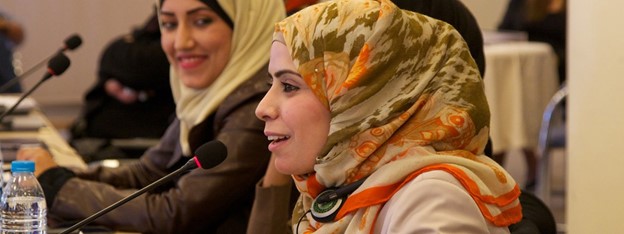How can the MENA Region Boost its GDP? Empower Women!

The economic impact of the COVID-19 pandemic disproportionately affects women. That’s why women’s economic empowerment (WEE), especially in the Middle East and North Africa (MENA) region, has never been more important than now. According to an United Nations report, past gains towards achieving gender equality and women’s economic autonomy are under threat to be rolled back. Recent McKinsey research on the impact of COVID-19 to women’s employment highlights that, “one in four women considered leaving the workforce or downshifting their careers versus one in five men,” because of the COVID-19 impact on their family.
This is a global issue, but the economic gap between men and women in MENA is staggering. According to the OECD, the region has the widest entrepreneurship gender gap between men and women in the world, and according to the World Bank’s Gender Data Portal, 73 percent of men are participating in the workforce compared to 20 percent of women. In fact, if women were working at the same rate as men, McKinsey research suggests that the region could potentially increase its gross domestic product by 47 percent.
Why is this gap so wide in the region? Two key issues – restrictive social norms and legal structures. For example, some countries restrict women from working in the evening, ostensibly to protect them from harassment. However, such restrictions limit the types of jobs women can do.And, though many countries have existing laws addressing economic inequity, barriers continue to prevent women from playing an integral role in their countries’ economies. These barriers range from income independence, ability to travel freely, access to inheritance and lack of public support for working women. Because of these restrictions, and if these barriers are not addressed, countries in the region may not not reach the global average– 48 percent– of women working for another 150 years.
IRI’s Women’s Democracy Network (WDN) is trying to tackle some of these key economic barriers. In 2019, through the WDN’s MENA regional network, the Arab Women’s Leadership Institute (AWLI), IRI launched the women’s economic empowerment summit, bringing women leaders across the region to discuss these key issues.
As a follow-up to that summit, AWLI is working with women leaders from countries across the region to develop gender-responsive policy solutions to address barriers to women’s economic empowerment. Follow #AWLIempower on Twitter and Facebook to stay up-to-date on AWLI’s activities!
Top